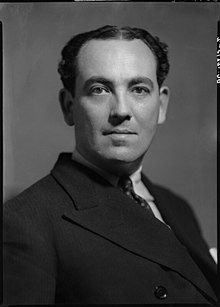Movies are good at the direct, the literal, and the obvious. The invisible workings of life are more mysterious than that, incomprehensible to everyone in it and exceedingly hard to present.Sarah: Love doesn't end, just because we don't see each other.
Maurice: Doesn't it?
Sarah: People go on loving God, don't they? All their lives. Without seeing him.
Maurice: That's not my kind of love.
Sarah: Maybe there is no other kind.
I'm reluctant to use words like "perfect" or "masterpiece", but this is a little gem of a film, inescapably troubling the mind and piercing the heart. For some reason I didn't think much of it when it was new, but after a recent rewatch I begin to gush. Where's the Blu-ray?
The twentieth century had a small literary genre I think of as a sort of "crypto-Catholicism": not explicitly religious but where intimations of the beyond creep up and entrap the characters. Flannery O'Connor was an American example and Evelyn Waugh did it in Britain with Brideshead Revisited and his Sword of Honour trilogy.
Graham Greene was another prominent English example, putting himself and his love travails into this story. The setting is before, during and after the Second World War and the story jumps back and forth, giving the same scenes from different perspectives, after we have new knowledge. At one point I thought we were seeing alternate histories, what might have been, but no: same street, same people, just a different year. Like Billy Pilgrim in Slaughterhouse-Five (1972), when reflecting over our lives we become unstuck in time.
The background is the War and the bombing of rainy, smokey London, but the frame is smaller, kept to a small group of troubled people.
We have:
- Ralph Fiennes is the narrator, an author recording the story of his hate. ("You're a good hater" the priest tells him). Who does he hate? That is to be revealed.
He is a jealous, possessive lover. She cheated on her husband so she will cheat on him too, right? Despite their shared passion her love is on a higher level he does not comprehend. No one does.
His moment of perfect happiness: waking in the rubble of the stairway after the building has been struck by a V1 bomb. Like being born again or returning to life. - Stephen Rea, the director's favorite actor, is the husband, a dull sexless civil servant. His love is not of the type his wife or friend appreciate, but it shines brighter toward the end.
His moment of happiness: none. He is a sad man. - Julianne Moore is the wife and adulteress, a woman of passion who gives her whole heart and body to her lover. And has to give him up after the bomb falls. "I knew nothing in this world would make sense to me again". And even then goes back to him, breaking a promise made to God.
Can such a woman be a saint? "I tempted fate and fate accepted". A little matter of what seems to be two miracles. "And we don't believe in those, do we?" chides the bitter author.
Her moment of perfect happiness: simple loving kindness when she kisses the boy's cheek ("His afflicted cheek" his father says, meaning the large birthmark). As if she were healed by her own act of healing.
Here he provides elegiac melody that sounds like one of the soundtracks of life. Really: when people say that I think they mean the pop music playing at the time, but if music moves you then life does have musical themes. Michael Nyman is one of those artists who can score the inexpressible poignancy of life. That's what it sounds like to me.
Jo Stafford's "Haunted Heart" is the period music.
I also want to mention Ian Hart who I just saw as the young John Lennon in Backbeat (1994), perhaps better known as the unfortunate Professor of the Dark Arts master Quirrell in the first Harry Potter film. Here he is a likable working-class outsider in the seedy job of private detective, spying on women to get the goods on them for divorce actions.
Some passion scenes, boobs and backsides. The self-image of the English is of coldness; it's good to break the stereotype.
Available on DVD, not very good quality. I'd like an upgrade.
The director provides a commentary which has -- as you would expect -- many worthwhile reflections:
- When making a period film he can't help but think of films made during that time. "Should I put the camera where David Lean would?"
- An Irishman, he feels as much an outsider to British class structures as the average American.
- Many actresses wanted the lead, but Julianne Moore tested and walked away with it.
- Neither she nor Ralph Fiennes required any sort of nudity or passion clauses in their contracts, both doing what was needed without hesitation.
- He did not know the book had been previously filmed as The End of the Affair (1955) and waited until the end of his own production to see it. His judgment: "Proof that films have always been bad".
- When he proposed the project to Columbia they didn't even know they had the rights to the book.


